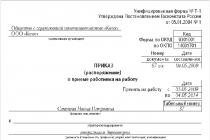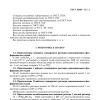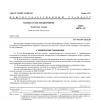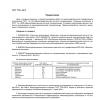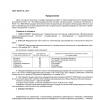Such lands are located, as a rule, next to the estate (a building intended for permanent residence and other economic constructions) and are intended for conducting any type of economy. That is, on the lands of private household plots, you can do gardening, plant a garden, breed animals or fish. Land with LHP status is transferred personally to an individual in ownership or lifetime inheritable possession. Rarely rented for long term.
It is customary to distinguish between two types of land allocated for the maintenance of private household plots:
- backyard (if it is located within the boundaries of the settlement);
- field (if it is located outside the boundaries of the settlement).
Possibility of development
Is it possible or not possible to build a residential building and outbuildings on land allotted for personal subsidiary plots? Everything will depend only on the location of the agreed allotment. If you have received a parcel within any locality, then you can build it.
The type of buildings is not limited in any way and no separate building permits are needed. A residential building built on a site within the selected locality can be officially registered and legally lived in it.
If the land plot for private household plots is outside the boundaries of the settlement, then it will not be possible to obtain permission to build it up.
Such lands are intended only for agriculture.
Formation and clearance
The law establishes that the authorities local government at their discretion can determine both the maximum and minimum size for such land allotments in the lands under their control. In addition, the law limits the maximum size of the plot on which household farming can be carried out - 0.5 hectares.
More recently, a clause has been added to the law stating that citizens are allowed to have more plots, in which case they total area should not exceed 2.5 ha. But in this case, the owners of the plots will need to register their activities as entrepreneurship or farming. This means that farming will have to be accounted for and taxes paid.
In order to get a plot of land for private household plots, you need to contact the local administration of the locality that you have chosen. An application must be submitted to the village council. It will contain personal data, the type of property right under which the land plot will be received, the address of the land plot and the approximate area.
It is also necessary to provide information about all the lands that are in the possession of the applicant. In case of a positive decision, preliminary decisions of the local administration will be issued about allocation land plot with an indication of its size, and type intended use- management of private household plots.
After that, you need to establish the boundaries of the received site - issue its passport. This is what design companies do. On the basis of this passport, the executive committee will issue an order on the approval of the boundaries of the land plot and on the transfer of these land plots to ownership.
This entire package of documents (decree, passport of the land plot, order to approve the boundaries and grant the land to the property) must be sent to the land cadastral chamber. The land plot will receive a cadastral number, a cadastral plan.
New documents again need to be submitted to the executive committee of the settlement. There, the applicant draws up documents confirming a certain type of property right. After this document is registered in the regional registration chamber,
The document that serves as the basis for the state registration of the applicant's ownership of a land allotment may be:
- an act from the local executive committee;
- land certificate;
- extract from the household book.
Let's try to figure out what a household book is.
The essence of the household book and extracts from it
The household book is the main document of administrative accounting of the inhabitants of this settlement. In addition, the book also notes that the registered population has land, residential buildings, livestock and other property.
Extracts from the household book are made by officials of the local self-government body in a special form. The economic accounting of land allotments is carried out throughout the country. Statements usually contain the following information:
- complete information about the owner;
- on what rights the owner owns this type of land;
- complete information about the LPH plot;
- detailed details of the book in which the information is entered.
If the owner of the LPH land has died, then it is possible to take an extract from the household book for the deceased. Since the extract from the household book is related to the property, and not to the owner. The copyright holder is indicated in the extract. If the local administration body does not want to issue an extract, you must ask for a refusal in writing.
In this case, it can be challenged referring to legislation. All citizens have the right to receive information about real estate, which also includes land plots.
Ownership features
Land allocated for personal household plots- one of the most profitable land statuses. Firstly, they, as well as on lands with the status of individual housing construction (individual residential construction), can be built up. Of course, only if the site is located within the boundaries of the settlement.
Secondly, the land tax in the case of acquiring a plot for private household plots will be significantly lower than in the case of individual housing construction. On the plot for individual housing construction, it is only possible to erect a residential building, and on the plot of private household plots it is allowed to erect a building and engage in agricultural activities. That is, there are more opportunities.
As for the comparison of land under private household plots and, then the land plots of private household plots are very limited in size (as we already wrote, the maximum plot should have an area of \u200b\u200bup to 0.5 hectares), but the advantage is the possibility of building a residential building.
It should be noted that all products that will be obtained from the land of private household plots are the property of the owner of the land. Its sale is not taxed, since work on the plot of the floor of private household plots is not considered entrepreneurial activity. This is a significant plus of owning land for personal household plots.
So, ownership has been obtained. From this moment on, the owner of a plot of land for personal household use receives the same rights as other land owners, which means that certain duties fall on him.
Namely: to use the allocated plot only as agricultural land and engage only in agricultural activities.
Acquiring a land plot with the status of private household plots is not as difficult as it may seem to the uninitiated. Many are afraid of facing the bureaucratic system. But the pleasure of owning a personal estate is worth much more. However, at any time you can.
Russia has changed the socio-economic system. This contributed to the change financial condition of people. A system of lending to ordinary citizens for various needs has become available. There was an opportunity to change the place of residence. Many city dwellers move out of the city to the countryside and choose houses with large garden plots. IN Lately it becomes a trend, especially next to major cities millionaires.
They run from large cities to villages for clean air, for silence and the opportunity to eat foods that are not stuffed with chemistry. Due to the fact that products in stores began to contain chemical ingredients that are harmful to health, more and more people are striving to grow agricultural products on their own for their own consumption. But you can also have income from a personal plot if you grow products for sale. Is the game worth the candle? Let's look at this article about earning on a personal subsidiary plot.
LPH is not a kind entrepreneurial activity for the production and processing of agricultural products. They are not registered as entrepreneurs. Our citizens, leading personal subsidiary plots, are recognized as agricultural producers on a par with farmers and agricultural enterprises in accordance with No. 122-ФЗ “On personal subsidiary plots”.
The most common phenomenon of household plots is a grandmother selling her potatoes and other vegetables in the market. We encounter this phenomenon frequently. In fact, she grows products for her own consumption, but she does not need them in such volumes. And the surplus goes on sale. Grandma will not be able to bring her products to the store. It just won't be accepted. Therefore, selling surplus products on the market is the most common way that does not take much time and money. In our time, fairs, weekend fairs, markets in the city and markets in countryside. There are no too serious requirements for products.
Expose your products to representatives of household plots in trading network quite difficult, too stringent requirements (passport, GOSTs for products, ensuring the stability of supplies). In the market, they only pay for trading place And that's where all the expenses end.
Therefore, having the opportunity to sell the surplus of manufactured products, it is necessary to decide for yourself what is more profitable: to trade in the market, in the neighbors with your products, or to open an individual entrepreneur and become an entrepreneur and be able to sell your products to stores. According to the law “On personal subsidiary farming”, it is allowed to conduct it alone or together with living citizens (family members). Such activity is not considered as entrepreneurship. Therefore, it is not regulated by business laws.
Criteria for determining private household plots:
The plot of land has a mark of the status of private household plots in the documents of the owner;
Farming is not about making a profit;
Surplus is not forbidden to be realized in any volume;
Only officially residing citizens work in private household plots. Hired labor is not provided;
The products obtained from this farm are used for personal needs.
On what lands can you conduct private farming
Personal subsidiary farming can be carried out on lands within the boundaries of settlements (on your own personal plot) or outside the boundaries of settlements (in the field). A land plot may refer to both "agricultural land" and "land of settlements" at the same time.
Homestead land plots are used for the construction of a residential building, domestic or other buildings, as well as for the production of agricultural products. Houses for living cannot be built on field plots and they are used only for the production of agricultural products. The maximum size of a land plot owned by a private household plot is regulated by acts of local governments and is no more than two and a half hectares or 250 acres. Farms can use adjacent lands that are officially registered to relatives or co-owners of the farm. Land in rural areas for the organization of private household plots can only be obtained by a citizen who has state registration in urban settlements and if there are free plots for these purposes in state or municipal ownership.
Taxation of private household plots
The owner of private household plots has preferential taxation, does not keep records. According to Article 217 of the Tax Code of the Russian Federation, taxpayers' income from agricultural products grown by them and sold, as well as in processed form, is not subject to income tax. Thus, when maintaining private household plots, you only need to pay land tax and property tax on real estate and equipment.
Sales of private household products
Before taking your products to the market, take care of a certificate from the local government that the products you are going to sell are grown on your site. Only in this case, the regulatory authorities will not find fault with you and will not require you to pay income tax.
When selling on the market, you do not need a CCP, since it is mandatory only for entrepreneurs and organizations to which the owner of private household plots does not belong.
How to register private household plot
Registration does not big problem for a citizen. Land for private household plots can be donated or bought. Very often, loans are taken from banks to buy land or a house with a garden plot. You can also get a plot for free. If the site is issued by local authorities, then its area is limited by the laws of local government. Each region sets its own norms for one person. The area of the plot will depend on the number of people who will live in this household. The area allocated per person is multiplied by the number of those who will live in the household. When you have the documents for a piece of land in your hands, it is considered that you have issued a private household plot.
Is it possible to go to the village council and apply for the allocation of land for private household plots? How to arrange a personal subsidiary plot?
You can apply to local authorities. There you enter your personal data. Describe the entire household that will be placed on the site. Household books are kept in local self-government bodies. In them, the owners of farms keep records of agricultural products produced. The data is provided voluntarily. Each owner submits the data that he considers necessary. Such books help local governments to keep records of the land used for business.
Often local authorities require registration of a household member in a given locality. Land can be allocated at the rate of 0.5 hectares per person. In total, no more than 2.5 hectares of land is allocated per household.
But land can be allocated a few kilometers from the house outside the settlement, arguing that only there is free land. Therefore, before planning the creation of a household, ask where the land will be allocated. Define a development strategy.
If ownership is confirmed, then there is no need for step by step instructions to open a LPH. Local self-government bodies will help to properly complete the documents.
What products can LPH produce
The household has the right to produce any product related to agriculture (including domestic and wild animals). Legislation allows you to process your products or sell them for further processing to enterprises. All agricultural products produced by your household will be your property.
The total number of animals on the land is not limited by law. You can have 8-12 cows. If there is a desire and an opportunity to take care of more animals and produce more agricultural products, then there are no obstacles. The main thing is that all animals are kept taking into account the required area per animal. All regulations take from veterinarians.
Owners can produce and process agricultural products on the territory of their household plots. And they can also be given for processing to other enterprises. The main advantage of such housekeeping is that the owner can enjoy the lowest percentage of taxation when running his business.
If you decide to produce biohumus, biosoil or some other fertilizers or soil mixtures on your site, the state will offer you to pay taxes in full from this entrepreneurial activity.
LPH is your personal business?
With the advent of a new socio-economic system in our country, the question of the employment of citizens is urgent. The percentage of the unemployed has risen, wages are regularly delayed at many enterprises. This does not bode well. Causes uncertainty in tomorrow, depression.
By opening such a business, you employ your entire family. Provide it with the necessary products of the most best quality. They will not contain any chemical additives. Eating good foods will make you and your loved ones feel great. There will be no need to run around clinics and doctors, spend money on expensive medicines.
How to open a private household plot from scratch? To do this, you do not need to hire a lawyer, there is no need for registration, registration with the tax office, quarterly submission of reports to tax office. No need for an accountant. You grow products that are in demand among the population. The state provides subsidies for such business.
Targeted lending, assistance from the state
The state allocates monetary assistance for the development of part-time farms, and banks issue special loans. True, banks are not very willing to issue loans to such farms. In order to find a suitable bank, you can use the services of a loan broker. Under the condition of well-thought-out actions, the services of a broker will more than pay off.
If the need for loans has not disappeared, then you can independently inquire about various programs in banks using toll-free numbers. Bank consultants will be happy to answer all your questions and take note of you. It is possible that the bank itself will offer a loan on terms that suit you.
You can take out a loan to buy seeds for sowing, to buy fuel and lubricants for your agricultural machines, to pay for the rent of the necessary premises, to buy young animals for breeding animals. Banks issue such loans for up to three years.
In order to receive subsidies from the state, it is necessary to collect required documents. The entire list of documents is available at the local administration. The deadline for applying for grants is set by the administration. The list of documents includes a reference-calculation for obtaining a subsidy.
Most often, such subsidies are issued to reimburse the cost of maintaining livestock. Your household must have at least four heads by the time you apply. As well as reimbursement of expenses for the purchase of necessary agricultural equipment. The amount of subsidies is allocated on the basis of allocated funds in the given region within the framework of the social contract and is established by local authorities. This assistance is provided once every three years. Such financial aid based on the business plan and supported by reports.
Conclusion
From this it can be concluded that organization of household plots and the sale of products produced on it is beneficial for many citizens living in rural areas. The undoubted advantage is the lack of registration and preferential taxation.
Content
Personal subsidiary farming is a term that defines a legal form of activity and private property at the same time. Entering into relationships with government bodies in any field of production, it is necessary to clearly know your rights and obligations. It is worth studying all the nuances legislative framework, the pros and cons of owning a plot for private household plots.
What is LPH
The activity of citizens, together with their family members, in the production and processing of agricultural products on the allotted plot of land was called personal subsidiary farming (PSP). This concept is enshrined in the Federal Law "On personal subsidiary plots" No. 112-FZ of 07.07. 2003. LPH lands can be bought or rented by issuing the relevant documents. The maximum size of such a land allotment, according to the law, should be no more than 0.5 hectares.
A private household plot is a land allotment within a settlement or beyond its borders, the permissible size of which is determined by the local government, depending on:
- areas of unused land suitable for farming within the given district;
- their level of demand.
Land plots for personal subsidiary farming, which are in state and municipal ownership, are allocated to citizens in accordance with Articles 9-11 of the Land Code Russian Federation» dated October 25, 2001 No. 136-FZ. For questions about their acquisition and execution of relevant documents, you must contact the administration of the regional department of the local government.
Appointment of household plots
The state allocates private household plots to citizens for non-productive activities, which means:
- Hired labor is not used. All work is carried out only by family members.
- Not set main task receiving income. The goal is to obtain agricultural products and products of its processing for personal needs.
Agricultural lands are territories with fertile soils not intended for construction. If a land allotment is allocated to a family from this category, then the construction of a residential building and other capital buildings on it is prohibited. Such land allotment is intended exclusively for agricultural production. On field plots it is allowed to erect temporary structures without a foundation.
Members of a personal subsidiary farm can choose for themselves any type of agricultural activity:
- animal husbandry:
- cattle breeding;
- poultry farming;
- beekeeping;
- rabbit breeding, etc.
- crop production:
- gardening;
- cultivation of decorative flowers;
- melon growing;
- viticulture, etc.

A citizen may be the owner of several plots for household plots. Their total area should not exceed the established by law. Local authorities have the right to increase the area of allotments for personal subsidiary plots up to 2.5 hectares. Processing of agricultural products is another area of activity for private household plot owners.
Surplus products obtained as a result of part-time farming can be sold. It does not require a patent and cash machine. The proceeds are not subject to taxation. The law does not provide for the registration of the activity of a personal subsidiary plot as an individual or legal entity, because it is not considered entrepreneurship.
Advantages and disadvantages
Before you buy private household plots, you should analyze all the pros and cons, correlate them with the desires and capabilities of the family. Maintaining a personal household plot has:
|
Advantages |
Flaws |
|
|
You need to understand that when running a personal subsidiary plot, the owner or tenant will have to comply with sanitary, fire safety standards, urban planning regulations and other requirements of the municipality for the maintenance and operation of the land. If a building with a foundation is built on a site located outside the settlement, it will be demolished by decision of a special commission. The owner who committed the offense will be fined for misuse of the land.
Law on household plots
The federal law "On personal subsidiary farming" regulates the legal relations between persons running a household and state bodies. Articles 2 and 4 of this law define the concept of private household plots and the conditions for its maintenance. In meaning, they are intertwined with Article 217 (p. 13) tax code RF, where it is indicated that in order to be exempt from taxation of income, the owner of private household plots must provide a certificate from the local government.
This certificate must confirm the fact of maintaining a subsidiary farm and its size. This document is a confirmation that all agricultural products produced are private property. In order to work successfully for the benefit of the family, it is advisable to study the regulations of the regional department of the local government regarding the management of household plots in this territory.
Other articles of the law state:
|
Article number |
What regulates, what regulatory legal acts confirms |
|
A citizen can be considered the owner, and his activity - legal, after the registration of the allocated area by the relevant authority. The registration process is enshrined in the law "On state registration rights to real estate and transactions with it ”No. 122-FZ of 07/21/1997. |
|
|
The size of land plots allocated for household plots is determined by local authorities, guided by the maximum area specified in the law. Requirements for field plots are specified in normative act“On the turnover of agricultural land” No. 101-FZ of July 27, 2002. |
|
|
Guarantees non-interference by the authorities, subject to compliance with the requirements of the law. The owner of the subsidiary farm must remember the criminal liability for growing plants containing narcotic substances. |
|
|
The list of property necessary for housekeeping is listed. The use of inventory, vehicles, buildings and structures on land owned is not contrary to law. |
|
|
Measures to support farms by state authorities have been determined. Based on this article and the Decree of the Government of the Russian Federation of 06/27/1996. No. 758 "Oh state support gardeners, gardeners and owners of personal subsidiary plots, owners of household plots can apply to local governments and other authorities on the following issues:
|
|
|
It says about the method of accounting for private household plots. The data is submitted on a voluntary basis and is issued in the form of a household book. The form and procedure for conducting it is approved by the local government. The article spells out the basic information about the economy to be accounted for:
|
|
|
Indicates mandatory pension insurance for citizens leading personal subsidiary plots. The period of conducting a personal subsidiary plot is equal to the period of validity of documents confirming the right to own a land plot. |
What is the difference between IZHS and LPH
Deciphering the abbreviation IZHS - land acquired for individual housing construction. Before you decide to buy a plot of land, you need to figure out which acquisition option is more suitable:
|
Points of difference |
||
|
primary goal |
production and processing of agricultural products for own needs |
construction of housing and utility rooms for personal use |
|
Construction restrictions |
capital construction (buildings with foundations) on field plots is prohibited |
residential building must have no more than 3 floors |
|
Method of acquiring land |
can be bought or rented |
|
|
Where is the land allotted |
backyard (in the countryside) or field (outside the settlement) |
in the city |
|
put on price |
lower than IHS |
|
|
Cadastral value |
||
|
Environmental conditions |
better than IZHS land is allocated in rural areas |
|
|
Allotment area |
more than IHS |
|
|
Construction project and its approval |
not required |
required |
|
Construction period |
no restrictions |
it is necessary to build a house within 10 years from the date of registration of ownership |
How to issue
A document on the ownership of a land plot is necessary for the owner when it is sold or exchanged for an apartment. To obtain and register a land allotment as a personal subsidiary farm, it is necessary to act as follows:
- For an informed choice, study information related to private household plots:
- Laws, regulations (state and regional), regulating the relationship between authorities and the owner of the land.
- Criteria for choosing a land plot.
- Economic aspects of running a personal economy (taxation, types of subsidies, etc.).
- Get advice from a competent specialist in the local administration about:
- Possible land area.
- her whereabouts.
- Availability of engineering networks.
- Support program from the local government.
- Procedure, terms of registration, etc.
- Fill out an application, submit it to the administration of the local government. In addition to personal data, it must include:
- Basis for purchase.
- The method of obtaining the allotment (ownership or lease). The right to privatize the allocated land plot will come after 3 years of lease.
- Desired land area.
- Provide an extract from the household book. It is issued by the local government body to the owner or his representative based on copies of the power of attorney and the passport of the trustee.
- In a special design organization it is necessary to obtain a passport (scheme) of the allocated land plot.
- Technical passport of the site with necessary package documents shall be submitted to the local administration for approval of the boundaries of the land allotment. Chapter municipality by its resolution must secure the right of transfer of ownership to the applicant.
- The collected package of necessary documents is transferred to the cadastral chamber to assign the corresponding number to the land plot and draw up a plan.
- Documents issued by the cadastral chamber are submitted to the local government for the final confirmation of land ownership.
- After making sure that in the documents confirming the ownership, there is a note that the site was purchased for the maintenance of private household plots, it is necessary to register it in the regional registration chamber.

Construction on the site
It must be remembered that capital buildings on a private household plot are allowed to be erected only on lands belonging to the category of settlements. Before the expiration of the “dacha amnesty” (March 1, 2019), to register a built house, only a documented ownership of the plot is required, indicating its purpose - maintaining a personal subsidiary plot.
In order to avoid unpleasant situations in the future, it is better to obtain a building permit. Penalties for construction without a permit amount to 2-5 thousand rubles and can be imposed repeatedly. The permit is issued by the local government within 10 days after the submission of the necessary documentation. The architectural department of the municipality must submit:
- Owner's statement.
- A document of title to a piece of land.
- Urban plan of the site. The administration of the executive committee issues it free of charge at the request of the land owner within 30 days from the date of application.
- Scheme of the planning organization of the site, on which the construction object is indicated. It is done by the builder.
Upon completion of construction, it is necessary to legalize a residential building and utility rooms. To obtain a certificate of ownership, it is necessary to collect a package of documents and submit it to Rosreestr:
- land owner's statement standard form, provide a passport;
- a document of title to the land or a lease agreement;
- building permit (not required before March 1, 2019);
- housing project;
- act of commissioning;
- receipt for payment of state duty.
Only members of the owner's family can register in the constructed housing, provided that the building meets the standards of an individual residential building:
- contains no more than 3 floors;
- the area is not more than 1.5 thousand square meters.
There is a possibility of increasing the area of private household plots. This process is called land redistribution. It is possible if the area of the formed plot of land does not exceed the maximum allowable size of household plots in the region. In this case, the new site should not:
- include parts of land belonging to another category;
- go beyond the boundaries of the settlement;
- enter the common area;
- affect building boundaries.
Sometimes it is worth changing the purpose of the allocated land, which is owned. Such a need may arise if the owner of the land decides to build a capital house on it. For example, the owner of land for gardening, before starting the construction of a building, must change the status of his site to "permitted use for personal subsidiary farming." Similarly (under favorable conditions), it is possible to change the status of a private household plot to industrial land.
The Town Planning Code of the Russian Federation regulates the requirements for the procedure for approving the rules for land use and development in the territories of local governments. Based on these rules, the following procedure for changing the status of a land allotment is assumed:

- The owner of the land submits an application for a change in the rules of land use and development to the local administration.
- The relevant commission shall issue its opinion on this issue.
- It is approved by the head of the municipality.
- Conduct public hearings on this issue in the presence of the owners of neighboring land and real estate.
- The relevant local authority approves the requested change.
- The changed status of the land plot is registered in the State Cadastre and the USRR.
Video
Did you find an error in the text? Select it, press Ctrl + Enter and we'll fix it!Discuss
PSF - what is it, the size of the land plot, the purpose of the activity and the necessary permits
The activities of LHP are additional source income for residents of rural areas and was carried out in a free, from the implementation of its main labor activity, time.
Some time ago, in the days of the USSR, as personal subsidiary farms, they assumed the type of activity of the inhabitants of the state in growing agricultural products on specially allocated land plots.
Residents of villages, villages and townships of various sizes, who worked in collective and joint farms, and received a monthly wages, could, after the official working day, grow vegetables and fruits on their plot of land, as well as keep various farm animals and poultry.
Helpful information:
Part of the grown products remained for personal consumption, and its surplus, which quantitative indicators could significantly exceed what was left for themselves, they sold it on the collective farm market, and also handed it over to the state through the procurement offices of consumer cooperatives. Through the sale of self-grown products, rural residents could purchase for themselves the necessary expensive industrial goods produced in the city, or spend money on health improvement or tourism.
LPH - what is it
IN modern conditions ideas about personal subsidiary plots have changed somewhat. For a large number rural residents, this activity has become the main source of income in our time.
If you have purchased land and a house that is documented in the Bureau of Registration and Technical Inventory of Real Estate, then you automatically become the owner of a personal subsidiary plot. If you have a desire to sell agricultural products grown on your own plot, you will need to take a document from the relevant authorities at the place of residence confirming that you are the owner of a private household plot.
In the Russian Federation, the functioning of such forms of ownership is regulated federal law"About personal subsidiary farming". It should be noted that this activity does not apply to business types activities. After receiving a certificate that confirms that your products are really grown on your own in private household plots, you can sell them at retail. Should be paid Special attention that such a certificate is valid only for a certain period of time.
How to apply for LPH

The right to maintain private household plots and dispose of real estate located on its territory belongs to able-bodied citizens who are provided with a land plot for these purposes. In this case, this area may be located:
- in municipal property;
- in state ownership.
The right to conduct a personal subsidiary plot of its owner comes from the moment of registration of rights to a plot of land used for these purposes.
Provision of land plots for organizing the activities of personal subsidiary plots is carried out on the following conditions:
- First of all, a citizen who is registered in a rural area at his place of permanent residence can receive such a plot for organizing his private household plot. Also, those who are registered in the cities have the right to receive a plot for the implementation of private household plots. For this category of citizens, land plots for the indicated purposes are given to applicants if there are free ones available;
- If a household plot is used to maintain private household plots, the owner of private household plots has the opportunity to erect various kinds of buildings on it. This may be a residential building, industrial and domestic buildings, as well as structures for other purposes. At the same time, it is imperative to comply with all necessary fire-fighting, hygienic, environmental and other norms and requirements;
- In the case of field plots, there is no opportunity for the construction of various kinds of buildings and structures on them. The user of such land may use it exclusively for the production of agricultural products.
It is worth noting that there are some norms on the size of land plots that can be used to carry out the activities of personal subsidiary plots. The documents established that the property (regardless of its type) of a citizen engaged in the maintenance of household plots can be up to 0.5 hectares. earth. But, it is worth noting that this figure, if desired, can be increased. The legislation provides for the possibility of increasing the area allocated for private household plots owned by the owner of the farm, with the help of the laws of the subject of the Russian Federation. At the same time, this indicator cannot exceed the above norm by more than 5 times.
What taxes?

The Tax Code indicates that the retail sale of agricultural products grown in household plots, except for ornamental plants and flowers, and products of its processing not taxed. The main condition is that the products must be grown in the Russian Federation. This is confirmed by a certificate issued by the authority at the place of residence.
But, there certain types such activities related to the functioning of household plots, which subject to taxation.
Let's take an example. The owner of a household plot sells vegetable seeds on the market that he has grown on his own land. To officially confirm this fact, he has the necessary certificate. In this case, his activities are not taxed. If there is no document, then payment of tax is mandatory. Moreover, this must be done no more than 5 days before the date of sale of the goods.
If the owner of private household plots sells seedlings and flower seeds, he must have a certificate and pay the tax for any number of days, but not exceeding a month. If the owner of private household plots does not have a relevant certificate, then the tax is paid no more than 5 days in advance.
It can be seen that organizing the activities of private household plots is not so difficult. You just need to learn a number of relatively simple rules.
tweet
Pin it
Like
Almost every resident of the suburbs and villages has a personal subsidiary farm, which allows him to grow products for his own needs. But quite often this product is obtained in excess, and residents sell it in the markets and through shops. The law does not prohibit such activities, so it makes sense to consider personal subsidiary plots as a separate business.
What is a private farm
The legislator defines a personal subsidiary plot (PSP) as a form of activity for the production and processing of agricultural products, which does not apply to entrepreneurial activity. The land plot for personal subsidiary farming cannot exceed 2.5 hectares. Anything above that is already considered a commercial activity that should be taxed.
Land for personal subsidiary farming is issued to each owner of a house in a rural area for life use with the right to inherit and sell. This land can only be used for agricultural purposes, but it is allowed to build a certain type of building: for living and various auxiliary buildings for agricultural activities.
Land for business
The use of land for private farming is regulated by special laws. Their provisions establish that for such purposes plots may be sold or leased by the state with an area of not more than 0.5 hectares. But at the same time, local authorities are allowed to increase this amount by a maximum of five times. That is, for a personal subsidiary farm, you can find land of a maximum of 2.5 hectares, if the local authorities consider it possible.
For these purposes, two types of land are distinguished: field and household. The latter are usually distinguished within the boundaries of the settlement and buildings, including residential ones, can be erected on them. Agricultural lands can be allocated for field use, but nothing can be built on them. Open own business It is possible with the use of both one and other lands.
How to get land
There are several ways to obtain land for private household plots in the property:
- buy;
- receive as an inheritance;
- obtained through the allocation of land by the state.
To do this, you must submit an appropriate application to the local administration, which considers the application within a month. With a positive decision, along with the decision, a plot scheme or a land warrant is issued. Each document must be stamped and signed by the head of administration.
Based on these documents, it is necessary to register the right to real estate. Each region has a separate government agency. Not later than a month, you must issue the appropriate certificate. If up to this point the boundaries of the site have not been established, they are outlined, a diagram is drawn up. For all these manipulations, a fee is charged. For the establishment of boundaries - on a contractual basis, and for the registration of property rights, a state fee of one and a half minimum wages citizens.
Business Benefits
The main advantage of such a business is that you do not need to register any entity, nor individual entrepreneur. But if you still decide to register the latter for maintenance commercial activities, you can enjoy the lowest percentage of taxation - 6%.
To open such a business means to employ your entire family, which will work for the common good. If the business is organized correctly, it will be 100% profitable. Moreover, such products are in demand among the population. In addition, targeted loans are allocated for such businesses, state subsidies are issued.
But in order for a personal subsidiary plot to bring a stable income, it is necessary to think over a business plan well and find clear answers to the main questions:
- What to build a business on?
- Where to sell products?
- How to compete with existing manufacturers?
- Is it possible to open your own outlet and how to do it?
The nuances of manufacturing agricultural products
There are no restrictions on the conduct of personal subsidiary plots. You can engage in animal husbandry, poultry farming, as well as grow vegetables and fruits. Accordingly, with an excess, the law allows them to be sold, as already mentioned, without registering an enterprise and paying taxes.
True, in order to officially not pay taxes, two important conditions must be met:
- The plot of land intended for the development of your farm should be no more than statutory area.
- The business should be serviced only by members of your family, without the involvement of hired workers.
Moreover, you can get a document from local governments, on the basis of which you can freely draw up a veterinary conclusion for personal farm products. Local self-government bodies are obliged to keep records of all personal subsidiary farms located on the territory entrusted to them. That is, in order to open a business, it is advisable to register with local governments, where you indicate your type of activity. Based on these data, a certificate with the relevant information is issued.
Lending and subsidies
Today this business and its development is supported by various structures. The easiest way to get targeted loans from banks. Each banking institution develops its own programs to support agricultural activities. They have different durations and purposes. For example, you can find a loan offer for a two-year period for such needs:
- acquisition building materials for fences and fences;
- purchase of planting material, seeds;
- purchase of fuels and lubricants;
- payment for rent of premises and land;
- payment of electricity required for irrigation;
- acquisition of young animals for breeding;
- purchase of plant protection products, mineral fertilizers;
- various seasonal costs.
It is also common to find offers of loans for capital expenditures related to side business for up to five years. For example:
- purchase of livestock;
- purchase of equipment for the processing of agricultural products or for animal husbandry;
- construction or repair of premises for animal husbandry;
- purchase of agricultural land, etc.
If special equipment is needed for a personal household, the business plan can also include a clause on obtaining a loan for it for special conditions. Money is given to:
- purchase of various vehicles for use on the farm weighing no more than 3.5 tons;
- purchase of tractors up to 100 hp;
- purchase of tractor trailers and semi-trailers;
- purchase of various equipment with which the processing of agricultural products will be carried out or which will be used in animal husbandry;
- irrigation equipment, etc.
Governmental support
The state has developed special programs of financial support for the formation and development, including personal subsidiary plots. It is not easy to get them, you have to meet a number of conditions and win the tender, but there is such an opportunity and it should be included in the business plan.
Such support is distributed across regions and issued by local authorities. To get a chance at it, you must submit everything to it. Required documents together with a certificate of calculation for receiving subsidies. Full list documents and deadlines for their submission are established by local authorities. Based on the submitted documents, state structure forms a register of applicants for subsidies and conducts a competition.
Conditions for receiving a grant
If a business plan is drawn up with the expectation of receiving government subsidies, it should be taken into account that most often they are allocated to such areas:
- Partial reimbursement of expenses for keeping cows. At the same time, in the personal household there must be at least three of them at the time of application. Funds are issued at the rate of 3 thousand rubles. one head per year.
- Partial reimbursement of expenses for the purchase of equipment and machinery of agricultural importance, which is included in the list of a special Annex to the rules for issuing subsidies. Please note that the cost plan for one subsidiary farm is no more than 150 thousand rubles. in year. Again, it must have at least three cows by the time you apply for the subsidy.
Documents for obtaining a subsidy
If your plan includes obtaining this type of public assistance, prepare the following documents:
- appropriate application in the prescribed form;
- an extract from the household book provided for the conduct of such a household (the extract must be issued in the same month in which the above application is signed);
- copies of payment documents or checks signed by the recipient of funds that confirm payment for artificial insemination services for the current year;
- copies of such documents (certified by the farm owner):
- transport passports that are registered in the economy;
- payment documents under contracts;
- contracts for the provision of services or performance of work, as well as documents that confirm their performance;
- contracts and other materials that confirm the purchase of materials, equipment or machinery.
The size of subsidies depends only on the allocated budget funds for these purposes within the given region.
Drawing up a business plan
Even if you plan to run a personal subsidiary plot, you, one way or another, need to draw up a business plan. First of all, it will help you personally outline the development strategy of the enterprise, evaluate possible risks and find ways to solve them. In addition, if you are looking to receive loans or subsidies from public or private institutions, you may also need a business plan. Often decisions are made on the basis of calculations provided by the owner.
Therefore, a business plan must be drawn up in detail and competently. To do this, it is imperative to take into account and paint the following points:
- What is the main direction of your business?
- Which additional types you include in your action plan.
- Where will the main income come from, and where will the additional income come from?
- What are your long-term and short-term goals?
- What will be the advantages of your products, thanks to which you are going to win your niche in the market.
- The main characteristics of the market: dynamics, attractiveness, trends.
- What are the risks associated with this activity?
- How do you plan to deal with risks, how can they be leveled.
- Is property insurance planned, according to what scheme.
Based on these points, three main components of a business plan can be distinguished, according to which it should be formed.
organizational plan
In this section, you must specify the name, surname and patronymic of the owner of the farm, the chosen area of activity, work experience in it, and education. It is also necessary to indicate other participants in the project, to give their characteristics. Here it is necessary to describe the conditions for growing products, property, and so on.
Production plan
This part is devoted to the characteristics of the land plot, technical base, other own resources owner. It is desirable to give an exact description of them, the advantages that the location provides, specifications, condition and so on.
Financial plan
The final part of the document will be financial plan. It should reflect things like:
- Estimated revenues, which are calculated based on the estimated production volume and price. According to which it is planned to sell products.
- Estimated costs, which are calculated from the estimated volume of purchases of equipment, fertilizers, medicines, feed, electricity costs, etc.
- If there are tax costs, they must also be taken into account.
- Remuneration of labor to project participants, even if it is planned to involve only relatives in it.
- Capital costs - the purchase of seeds, livestock, building materials, equipment, etc.
- Sources of financing, their conditions and forms.







